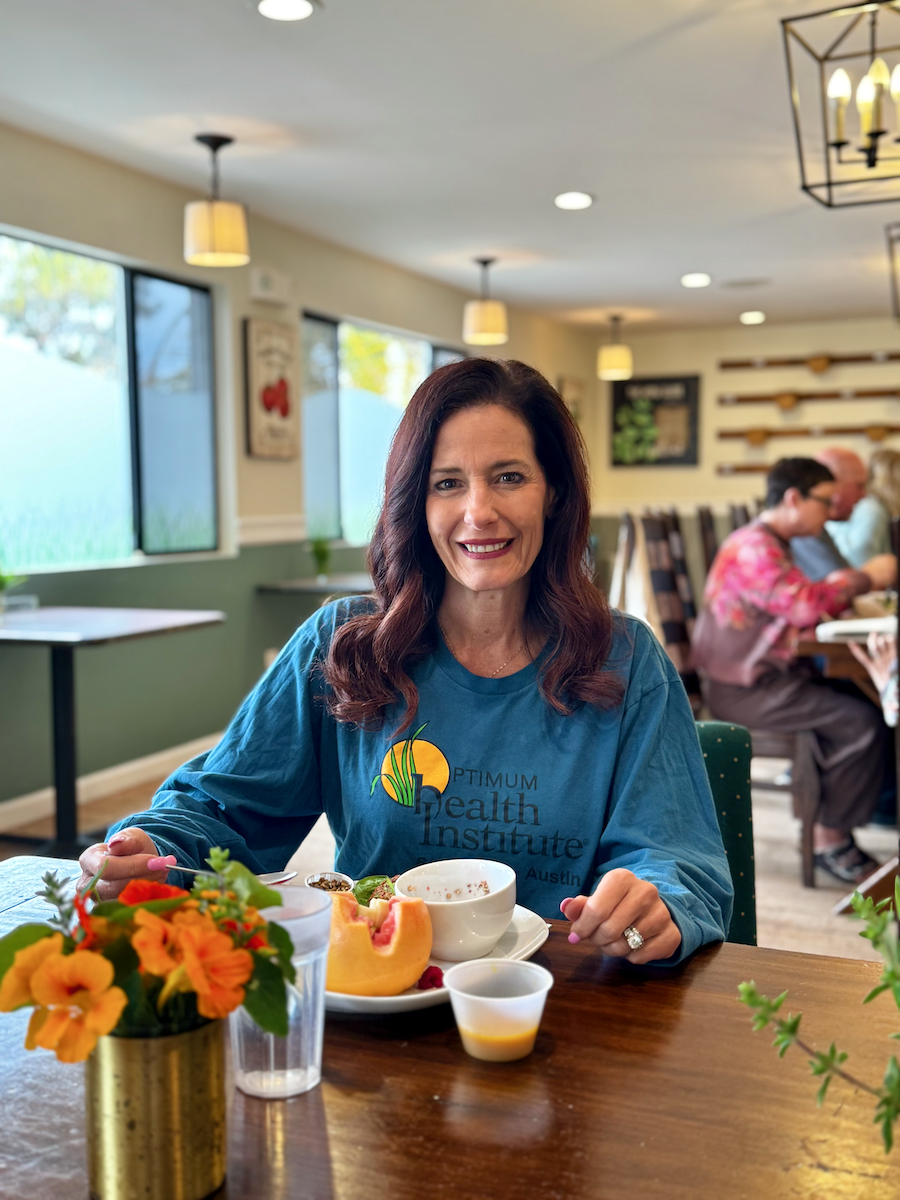4 min read
The Power of Pause: Prioritizing Yourself to Recharge and Thrive
By: OHI on Oct 6, 2025 5:00:01 AM

In a world that celebrates busyness, taking a pause can feel counterintuitive—or even indulgent. Yet, research and holistic wellness practices consistently show that intentional downtime is essential for physical, emotional, and spiritual health. Pausing isn’t about being lazy; it’s a deliberate act of self-prioritization that supports resilience, clarity, and overall well-being.
At OHI, we see firsthand how stepping back from the constant demands of life allows guests to recharge, reconnect, and thrive. When you give yourself permission to slow down, you create the space to restore energy, process emotions, and gain perspective. The power of pause lies in its ability to transform not just how you feel in the moment, but how you approach life long-term.
Why Pausing Matters
Our bodies and minds are designed for cycles of activity and rest. Chronic overwork, digital overstimulation, and emotional strain disrupt these natural rhythms, leading to fatigue, burnout, and decreased resilience. In contrast, intentional pauses reduce stress hormones, lower blood pressure, and improve immune function.
A pause doesn’t have to be long to be effective. Even a few minutes of mindful breathing, a brief walk in nature, or sitting quietly with your thoughts can signal to the body that it’s safe to relax. These moments of stillness help regulate the nervous system, clear mental clutter, and restore focus. Over time, regular pauses cultivate a deeper sense of balance and inner strength.
Emotional and Mental Benefits of Downtime
When life moves at a rapid pace, emotional processing often gets postponed. Unaddressed feelings—stress, grief, anxiety, or frustration—can accumulate, impacting mood, relationships, and even physical health. Pausing gives you the opportunity to notice, acknowledge, and release these emotions before they become overwhelming.
Mental clarity is another benefit. Continuous activity and distraction can cloud judgment, increase reactivity, and reduce creativity. By intentionally stepping back, you give your mind a chance to reset. Problems often become clearer, solutions appear more readily, and insights emerge that were hidden in the noise of constant busyness.
Pausing as a Practice of Self-Priority
Prioritizing yourself through intentional downtime sends a powerful message: your well-being matters. When you carve out moments to rest, reflect, and recharge, you reinforce the idea that caring for yourself is not optional—it’s essential.
Here are practical ways to integrate pauses into your daily life:
- Mindful Breathing: Take three to five minutes several times a day to focus on your breath. This simple practice helps calm the nervous system and center your thoughts.
- Scheduled Breaks: Block off specific times in your calendar for quiet reflection, journaling, or meditation. Treat these appointments with the same importance as work meetings.
- Nature Walks: Step outside without your phone or distractions. Observe your surroundings, listen to the sounds of nature, and allow yourself to be present.
- Digital Downtime: Set boundaries for screen time, especially around meals and before bed. Reducing digital noise can dramatically improve mental clarity and sleep quality.
- Restorative Practices: Incorporate gentle yoga, stretching, or restorative movement to release tension and rejuvenate the body.
Even small pauses, repeated consistently, build resilience over time. They allow you to respond thoughtfully rather than react impulsively, and they strengthen your ability to handle stress with composure.
The Ripple Effect of Prioritizing Yourself
When you make pause a priority, the benefits extend beyond your own well-being. Your relationships improve as you approach interactions with more patience and presence. Your work becomes more focused and efficient because your mind is clear. And your overall sense of joy and satisfaction increases because you are operating from a place of energy and balance rather than exhaustion.
In essence, pausing is not a withdrawal from life—it’s an investment in it. By stepping back, you give yourself the capacity to engage more fully, creatively, and authentically with the world around you.
Pausing as a Path to Holistic Healing
At OHI, we see how intentional pauses support holistic healing. Guests often arrive feeling depleted and overextended, only to discover that slowing down is a radical act of self-care. Through mindfulness practices, quiet reflection, restorative activities, and a supportive community, they experience profound shifts in energy, clarity, and emotional resilience.
Creating space for pause encourages a deeper connection with your body, mind, and spirit. It allows healing to occur naturally, rather than forcing it through activity or distraction. The result is a sustainable sense of wellness that extends far beyond a single program or retreat.
Embrace the Power of Pause
In a culture that prizes constant productivity, choosing to pause can feel revolutionary. Yet the benefits are undeniable: reduced stress, increased mental clarity, greater emotional resilience, and enhanced overall well-being.
Prioritizing yourself through intentional downtime is not a luxury—it is an essential practice for thriving in all areas of life. By embracing the power of pause, you create the conditions for healing, growth, and lasting transformation. Your mind, body, and spirit deserve it—and the world benefits when you show up fully renewed.
At OHI, we provide the space, guidance, and supportive community to help you embrace the power of pause. Step away from daily demands, recharge your mind and body, and experience holistic renewal in an environment designed for rest and reflection.
Book your next visit to OHI today. Call OHI at (800) 588-0809 to learn more about our holistic approach to health and wellness.


